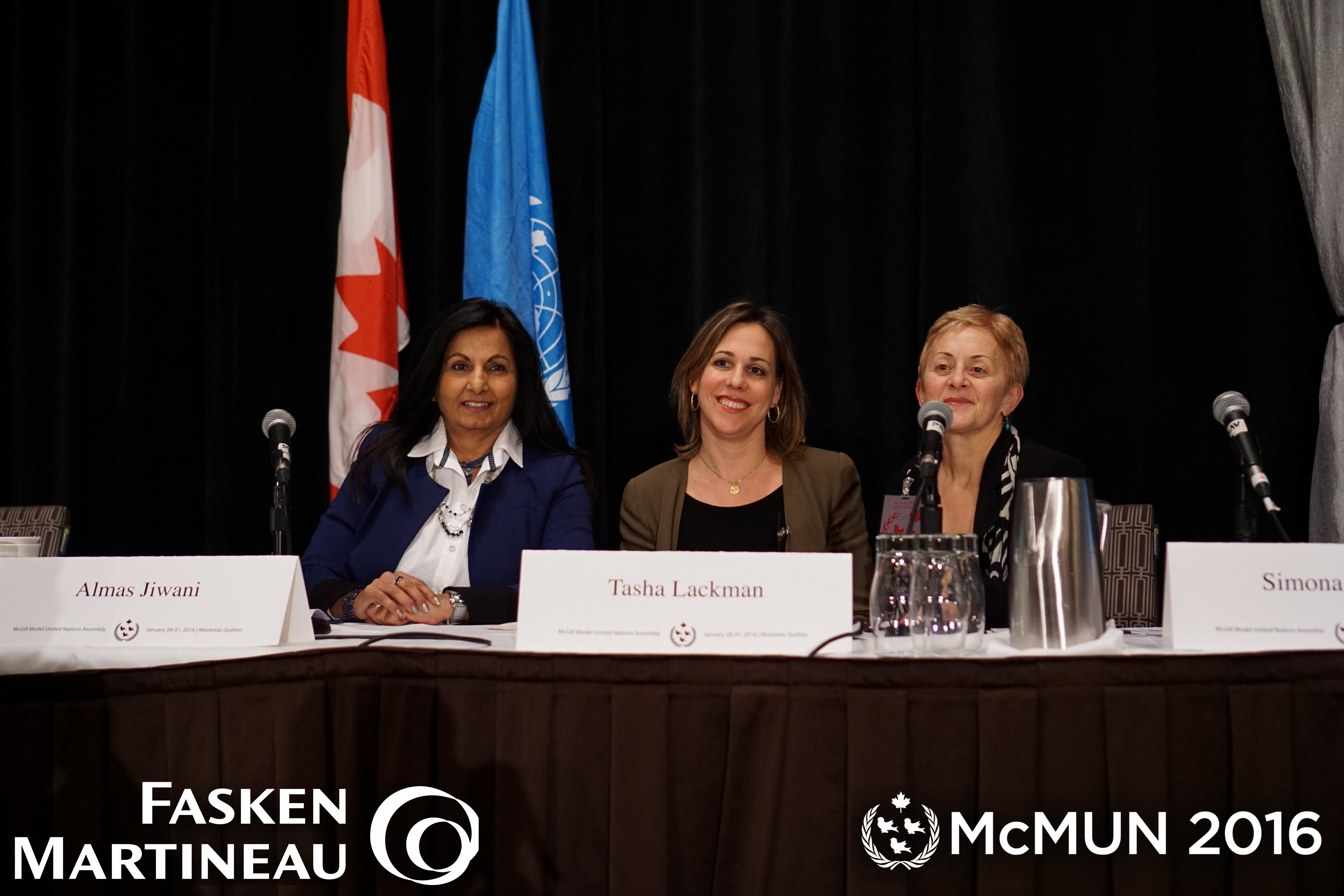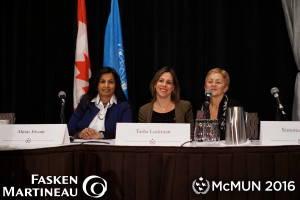McMUN Global Leadership Forum: Gender equality as a shared responsibility

From Justin Trudeau’s self-proclamation as a “feminist” to Emma Watson’s HeForShe campaign, the discussion about gender equality is gaining international traction every day. Accordingly, it was no surprise that this year’s McMUN Global Leadership Forum, explicitly organized to educate visiting delegates on a particular issue or topic, was focused on the subject of gender equality.

This year’s speaking panel was comprised of three women who, despite their evidently varying specializations, were all deeply passionate about creating a more equal world. Almas Jiwani, former President of UN Women Canada, discussed the importance of political representation for women, with particular emphasis on the great responsibility and influence tomorrow’s leaders have in making gender equality a reality. Dr. Simona Sharoni, Professor at the State University of New York, explored the violence women face internationally, covering issues ranging from campus rape to the use of sexual violence as a weapon of war. Lastly, Tasha Lackman, Partner at Fasken Martineau DuMoulin LLP, explored the effects of gender inequality in the private sector, offering anecdotes about her experience with sexism while climbing up the corporate ladder.
Overall, these women had vastly differing experiences and consequently unique ideas to contribute, but the overall message was crystal clear: gender inequality is an issue that pervades every sphere. Delegates were invited to identify links between Lackman’s male-dominated law firm and Jiwani’s outrage at the lack of female negotiators during international conflict. The common element was a perverse notion, strengthened by systematic forces, which condemns assertive women while rewarding men mirroring this behavior. All three panelists agreed that the issues surrounding gender equality are far from isolated, but are rather the consequences of aggregated socioeconomic and historical factors that have culminated over time. This was just one of the many examples of the panel’s ability to combine individual voices into one solidary message.
Commendably, the panel included a discussion on the role of men in promoting gender equality, which was a refreshing approach to a subject commonly seen as exclusive to women. In particular, Dr. Sharoni urged men to hold each other accountable for all aggression towards women regardless of their status. She then gave examples that ranged from men using objectifying language with their friends to the adequacy of Canada’s laws regarding rape.
Although we are far from achieving gender equality, it is forums like these that invite the act of healthy discussion. I interrupted a group of delegates conversing about the forum, and a delegate named Jeremy told me that “although people have different interpretations of what [feminism] means, it was interesting to hear the speakers’ views and their own interpretation on the word.” It seems that if the goal of the forum was to generate debate and further interest, it was a successful panel indeed.
Photo credits to McMUN/Philip Nguyen-Powanda
